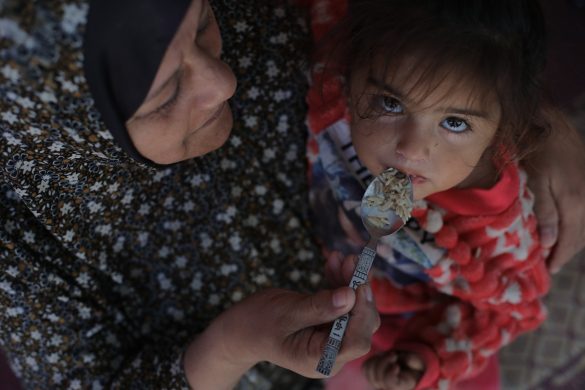ROME, 2 May 2012: The detection in the Gaza Strip of a new case of a novel strain of foot-and-mouth disease (mund- og klovsyge) underscores the importance of maintaining – and intensifying — international efforts to stop the virus from spreading further in the Middle East and North Africa, FAO (FN’s fødevareprogram) said Wednesday.
Following outbreaks of the SAT2 strain of the virus in Egypt and Libya in February, fears that it might jump to neighboring areas were confirmed on 19 April when sick animals were detected in Rafah, a town in the Gaza Strip bordering Egypt.
The SAT2 variant is new to the region, meaning that animals do not have any acquired resistance (modstandskraft) to it.
“Diseases simply do not respect international boundaries, and if FMD SAT2 reaches deeper into the Middle East it could spread throughout vast areas, threatening the Gulf countries – even southern and eastern Europe, and perhaps beyond” said Juan Lubroth, FAO’s Chief Veterinary Officer and head of the organization’s Animal Health Service.
Movements of animals from the Nile Delta eastward through the Sinai Peninsula and north into the Gaza Strip have been deemed the highest risk for the spread of the SAT2 FMD virus strain into the wider Middle East region, where livestock (kvæg) are a major component of household food security.
Transmitted via the saliva of sick animals, the FMD virus spreads easily via contaminated hay, stalls, trucks, shoes and clothing – even the hands of traders inspecting animals at market.
This emphasizes the importance of thorough inspection and prevention systems when dealing with imported plants, animals or other biological material.
Mobilizing vaccines Gaza Strip will be receiving an initial lot of 20 000 vaccine doses to protect its valuable cattle. An additional 40 000 doses will be made available as soon as possible for sheep and goats.
Meanwhile, FAO and the FAO-based European Commission for the Control of Foot-and-Mouth Disease (EuFMD) are negotiating with producers and vaccine banks to find sources for vaccines in the event of further spread of foot-and-mouth disease and a worsening of the current situation.
FMD, which affects most cloven-hoofed mammals, has devastating (ødelæggende) effects on meat and milk production and can cause mortalities among pregnant and young animals. It does not pose direct human health risks, but milk or meat from infected animals should not be consumed, as any livestock products entering the food chain should come only from healthy animals.
Læs hele artiklen her http://www.fao.org/news/story/en/item/141694/icode/














